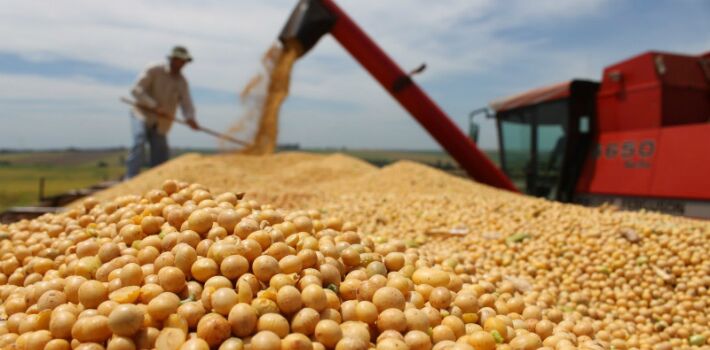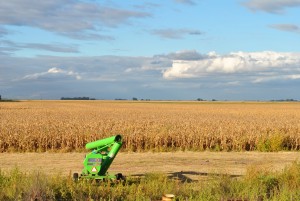
EspañolThe Argentinean government keeps 93.5 percent of the profits generated by the agricultural industry, according to the latest report by the Foundation for Agricultural Development in Argentina (FADA) released on June 25. High taxes, inflation, and a drop in international commodity prices, such as soybeans, corn, and wheat, are among the reasons cited for this heavy burden.
The FADA report explains that this number has grown over the years. Between 2009 and 2013, the government took only 75 percent of the profits.

“The reason for this hike was not a tax increase, but the permanence of existing taxes and export duties from a time when there was a higher real exchange rate and good prices on agricultural commodities,” notes the report.
Since 2013, the situation has worsened for Argentinean farmers. The government currently pays farmers AR$5.91 for every US dollar they export, despite an official exchange rate of AR$9.09 per dollar. Meanwhile, the price of commodities such as soybeans have plunged, being traded for roughly half the price of three years ago.
“This results in a reduction of the profit generated by each hectare, and an increase in the government’s share, because export duties are calculated based on the brute value. In other words, transportation and management costs are not taken into account,” the report states.
The 93.5 percent that the government takes is distributed between national and provincial taxes, as well as the “intervention costs” that force producers to sell wheat and corn below their international price levels because of their abundance in the local market.
Farmers, therefore, have no incentive to grow wheat or corn, according to the report, despite the fact that their soil needs these kinds of crops to preserve fertility in the long run.
“On the one hand, wheat and corn provide organic matter for the soil, while crops such as soybean extract it. On the other hand, rotation is good for weed control. If the same species are grown too often, more resistant weeds emerge and more chemicals must be used, with stronger components to remove them.”
FADA is an NGO that researches, designs, and disseminates public-policy information with the goal of helping the agriculture sector in Argentina. The organization has called on President Cristina Kirchner to address the current situation and adopt policies that will boost the sector’s sustainability.
FADA is adamant that more production will mean more jobs for Argentineans, but adds that it is “necessary for those taking political decisions to understand that this issue goes beyond the economics of the agricultural industry.”
“It impacts the soil that we leave to our children, the economy of the entire country, our exports and the availability of foreign currency, and is directly connected to genuine job creation. With adequate policies, 500,000 new jobs can be created across the country,” FADA claims in their report.
Aldo Abram, director of the Liberty and Progress Foundation, tells the PanAm Post that Argentinean farmers today are practically working for the government, and this is the real reason that the industry is going through a crisis.
As for the unfavorable exchange rate that farmers receive, Abram says it functions as a sort of export duty that all Argentinean exporters must pay. “The Argentinean Central Bank does not pay farmers the real value of the US dollar in Argentinean pesos.”
He explains that corn, wheat, and milk are not only subjected to high taxes, export restrictions cause an excess supply in the domestic market, and therefore diminished profits for the producers.
“Soybean has a great advantage, because [in Argentina], no one eats it. They are not going to restrict exports on that,” he says. Abram adds that soybean may be “the answer to the distortions caused by the government” and its attempts to “squeeze the agricultural industry.”
 Versión Español
Versión Español












